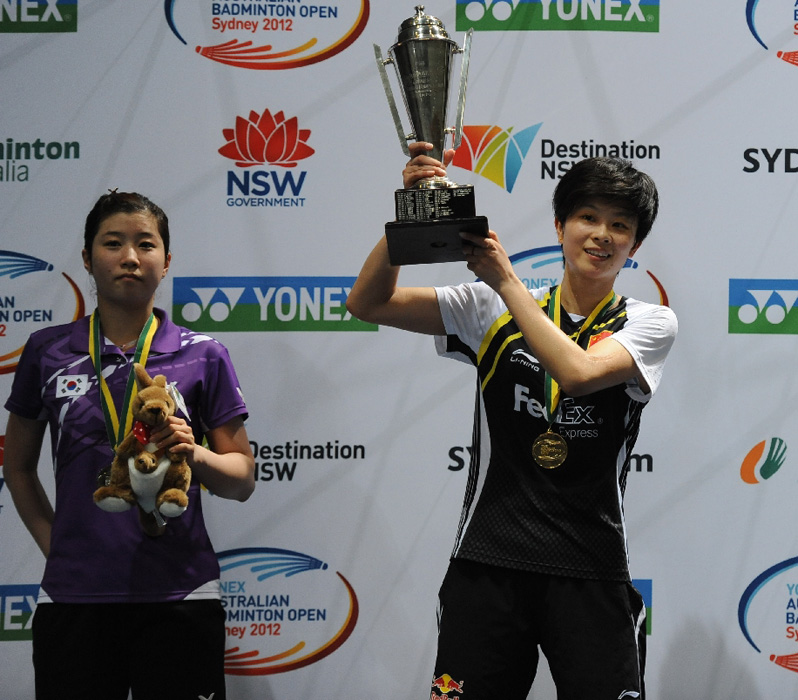
Australian Open women's singles runner-up Bae Youn Joo of Korea (left) and champion Han Li of China
Qualifier Han Li of China, ranked 92nd in the world, applied and got the job as 2012 Yonex Australian Open Grand Prix Gold women’s singles champion after seven rounds of interviews.
Tickets for Finals day at Sydney’s Darling Harbour were completely sold out, and the queue to enter the hall one and half hours before start time already extended thirty metres.
By Aaron Wong, live from Sydney. Photos courtesy of Badminton Australia (live)
Women’s singles: A star is born
Amongst the busyness of it all, Han Li stole a self-congratulatory glance at the hefty trophy during the presentation ceremony as though to deliberately memorise the special moment, “Finally, I’ve-done-it. My-very-first-one!”, for she has been to three Grand Prix Gold finals recently and come up empty until today.
Han’s second straight-game demolition, within four months, of Korea’s Bae Youn Joo was nothing difficult. Bae was made to traverse the perimeter and diagonals of the court wherever the Chinese dictated and fell victim to lethal drop shots.
Bae Youn Joo (pictured right) was also capable of expert drops but her chances to employ them on an unbalanced opponent were fewer because she was mostly the one reacting to and chasing the shuttle. Bae, although adept at returning shots from her deep forehand corner, found herself constantly pinned there.
Bae’s backhand clears were stronger and she managed to engage Han in rallies in the second game except she lacked smash power today to put away the half-court opportunities she had created for herself so the points extended out with Han steadily, through having more weapons of choice, winning the lioness’s share of them and the match, 21-13, 21-14.
Women’s doubles: Twins win
The Chinese Luo twins smashed continually, sure in the fact that, although their opponents defend brilliantly, a few unforced errors would creep in. They were right. Luo Ying and Luo Yu, ranked 48th in the world, took it 12-21, 21-18, 21-17 in exactly one hour.
Taiwan’s Cheng Wen Hsing / Chien Yu Chin kept the scores close by using percentage play but not proactively going out to grab the lead in the second game – as a way of resting Cheng (pictured below), who had already played a long mixed doubles final – was a strategy that would backfire.
The third game thrilled the audience as the rallies became even longer and flatter, and nerve-wracking for spectators. Chien was trying brute power, which worked sometimes, in conjunction with her experience to smash her third smash through the middle of the Chinese pair, who would leave it untaken.
The Taiwan pair equalised several times but in trying to etch out a lead in the closing stages, Chien returned a short serve into the tape and also wasted two more points in trying to end the rallies prematurely. Facing 17-19, it finally became too much to ask to accelerate to level plus go beyond the youngsters.
Men’s doubles: Fang falters
The first game of the men’s doubles contained three players of average high quality, with only Hendra Setiawan feeling inspired. Markis Kido’s flat smashes met the tape of the net and Fang Chieh Min was poor at fulfilling his responsibilities taking care of the net area.
As Kido began jumping to smash from the rear, Taiwan’s Fang/Lee continued to appear nonplussed about winning with Fang repeatedly committing errors on returns of smashes that he was in position for, and his short serves were also relatively loose, causing more points to go begging.
Lee Sheng Mu, blonde and bearded, was focused but taking on the alertness of both Kido and Setiawan now would be too much and the match went to the Indonesians, 21-16, 21-15.
“Actually, we were expecting a more difficult match,” Hendra remarked afterwards.
With four months until the London Olympics, the humble and realistic Indonesians described the current badminton scene as they see it: “Korea’s Jung Jae Sung / Lee Yong Dae and China’s Fu Haifeng / Cai Yun are definitely better than us right now.”
Men’s singles: Chen got his Jin (gold)
2010 Paris World Champion Chen Jin opened his account with a 5-1 lead as he implemented his naturally muscular game plan earlier in the match than in previous days and it paid dividends, giving him a 21-11 head start.
Vietnam’s Nguyen Tien Minh was unable to unsettle Chen the way Simon Santoso is able to. The “running” style of play of the Vietnamese was evidently not the kind that troubles Chen and with the predictability of shots he was witnessing, the Chinese ace was all over his opponent like a rash.
Although Nguyen was troubled by Chen Jin’s smash time and again, even when in position, there was also a predictability to Chen’s formula, so the Vietnamese attempted to change his footwork down to third gear to get to all the shots earlier, add very high clears, and he won some of the rallies with drop shots. It was not enough, however, as Chen is incredibly fit too and added the running style to his own muscle game.
Without a bigger smash and with Chen equaling his speed, Nguyen looked bereft of hope on how to construct inroads against an opponent he has not beaten before and was overcome in the second game. Chen won 21-11, 21-12.
Mixed doubles: Both sides equal amounts of skill and nerves
Mixed doubles was a match between equals. Equal in terms of skill, nervousness and luck.
Cheng Wen Hsing’s unmovable defence was key to maintaining stability in the first game. She never flinched or retreated against the smashes of Malaysia’s Chan Peng Soon (pictured right).
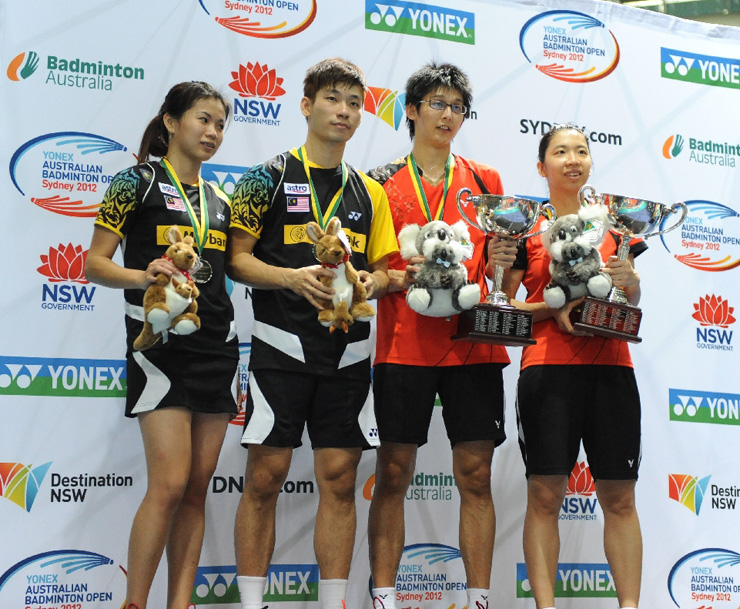
Australian Open mixed doubles runners-up Goh Liu Ying / Chan Peng Soon (MAS), left, and champions Chen Hung Ling / Cheng Wen Hsing (TPE)
Chan/Goh created a four-point buffer in the second game. Just as their opponents had a modicum of luck at the end of the opening game, this time it was the Malaysians turn and a fluke net shot by Goh Liu Ying at 19-12, put them out of reach.
Chen Hung Ling knew two things: that he needed to make a difference in the rubber game and to accept that his backhand drive shots were only sufficient to maintain status quo but not threaten. Controversy over a double hit which the umpire did not see, but all of the crowd heard, was called a let instead of awarding the point to the Malaysians, and this kept scores tight.
Each side suffered nerves and Taiwan gave away their match point to go to deuce. Cheng Wen Hsing suffered a case of the “Ha Jung Euns” and served two short serves as though she’d just learnt how to play badminton and they sat up by a head, the first was a surprise and the second was punished severely but it was the Taiwan pair who regrouped the quickest in a frighteningly close dash to the finish line in a 63-minute match that ended 20-22, 21-12, 21-23.
“My backhand strength is still recovering from injury,” explained Chen Hung Ling, who had it taped in black for this match. “…Since the Japan Open…” his winning partner Cheng Wen Hsing added.
For the first time since the tournament got underway, it began to rain. Sydney was sad it had come to an end but the Australian Open will be back in this city in 2013 announced the compere.
Final results
XD: Chen Hung Ling / Cheng Wen Hsing (TPE) [2] bt Chan Peng Soon /Goh Liu Ying (MAS) [3] 22-20, 12-21, 23-21
WS: Han Li (CHN) bt Bae Youn Joo (KOR) [5] 21-13, 21-14
MD: Markis Kido / Hendra Setiawan (INA) [6] bt Fang Chieh Min / Lee Sheng Mu (TPE) [3] 21-16, 21-15
WD: Luo Ying / Luo Yu (CHN) bt Cheng Wen Hsing / Chien Yu Chin 12-21, 21-18, 21-17
MS: Chen Jin (CHN) [1] bt Nguyen Tien Minh (VIE) [4] 21-11, 21-12
![AUSTRALIAN OPEN 2012 Finals – Darlings of the Harbour City Qualifier Han Li of China, ranked 92nd in the world, applied and got the job as 2012 Yonex Australian Open Grand Prix Gold women’s singles champion after seven rounds of […]](http://www.badzine.net/wp-content/uploads/Newsflash-thumbnail.png)
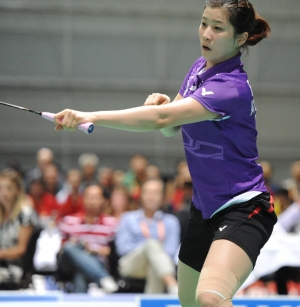
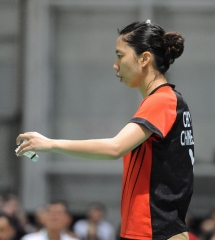
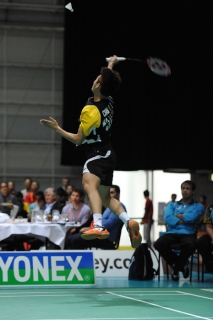

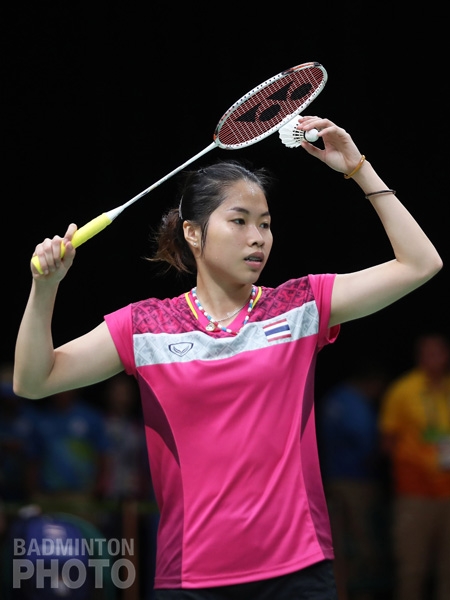
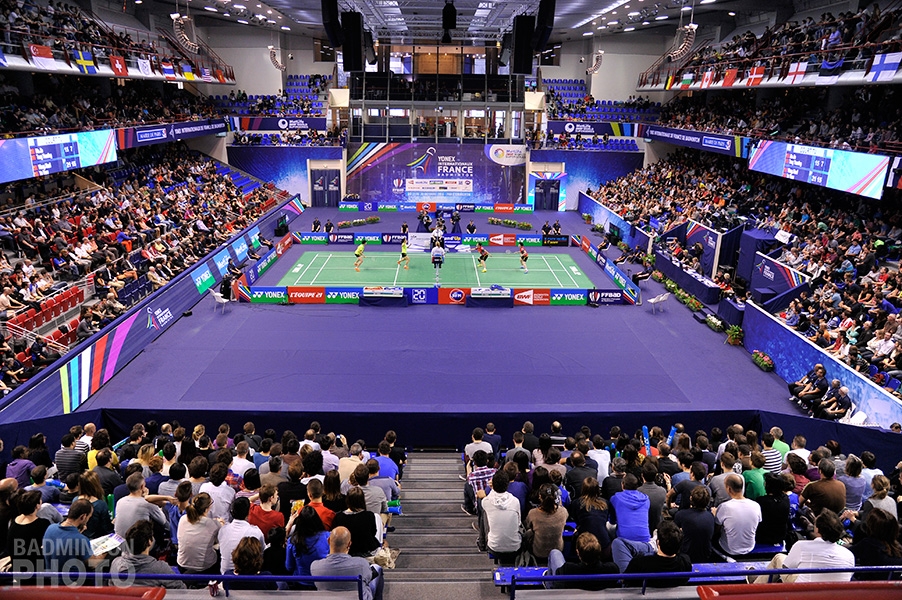
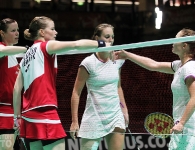
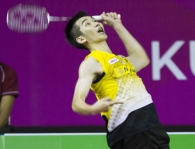
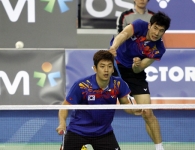
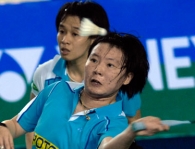
Leave a Reply